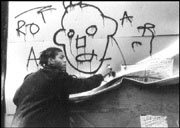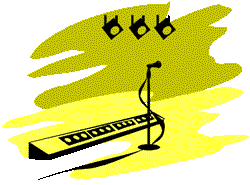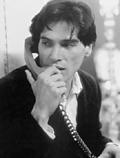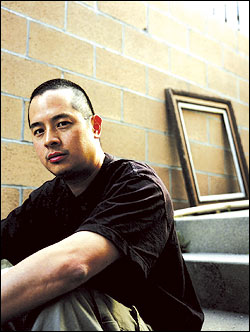UNTIL SOMEONE 15 years from now makes ironic reference to the summer 2001 movie season (“It was great!”), it’ll be hard to feel anything but relief at its passing. Was anything that got hyped actually good? Was anything good at all? And need I bother mentioning the sequels? But as entertainment complexes get swallowed by one megalith after another, we the viewing public get to see corporate synergy in action—and hear it, in the form of cross-licensed movie soundtracks.
Luckily, these discs have some inherent advantages over the larger works they exist to hawk. (Generally speaking, of course, so do Taco Bell tie-ins, at least when they include free Mexi-Fries, but we’ll leave that for another time.) Even when they’re as formulaic as their filmic counterparts (which they almost always are), soundtracks tend to cast their net more carefully. Done well, they frequently work as a primer for a particular style or sensibility instead of trying to be all things to all discretionary-income-laden 13- to 24-year-olds.
For instance, American Pie 2: Music from the Motion Picture (Republic/Universal) is a state-of-the-art overview of gleaming-brite middle-American mall-punk, including Warped Tour faves Green Day, Blink-182, American Hi-Fi, and Sum 41. Appropriate for a sequel, these bands are the stylistic descendants of the high-octane junk-music groups heard in the ’80s teen comedies that inspired the original Pie, particularly Fast Times at Ridgemont High. (Fenix*TX—those kids and their wacky typographical idiosyncrasies!–even pay tribute to that movie’s star in “Phoebe Cates.”) There are, of course, obligatory exceptions: 3 Doors Down’s piece of pseudo-introspective Everclear-wannabe shit screams “male bonding montage,” while Angela Ammons checks in with some yawnsome midtempo lovelorn-itude that’s tailor-made for the Breakup Scene. What else would you expect from a (cough, cough) coming-of-age movie?
AND WHAT WOULD you expect from an action movie? That’s right—action music. In fact, it’s safe to say that the soundtrack to Lara Croft: Tomb Raider (Elektra) is a rougher and more thrilling ride than the movie itself. Like AP2′s soundtrack, Tomb Raider is as much genre sampler as promo tool, focusing on techno: the Chemical Brothers, BT, Fatboy Slim (whose “Illuminati” is, disappointingly, a remix of his classic “Michael Jackson” topped with Bootsy Collins’ voice), and the ubiquitous Moby all appear. Here, though, the exceptions to the norm are the highlights. U2 remixes “Elevation,” from the back-to-rock-basics album All That You Can’t Leave Behind; ironically enough, it’s a far tougher dance crossover than anything on their ballyhooed “techno album,” Pop. OutKast’s “Speedballin'” proves the Atlanta rap duo can get even farther out than “B.O.B.,” last year’s best single, while Missy Elliott’s Nelly Furtado-enhanced remix of “Get Ur Freak On” picks up OutKast’s torch: It’s this year’s best single.
Too bad nothing on the hip-hop/R&B-heavy Rush Hour 2 disc (Def Jam/Universal) comes near either of those songs. Appropriate to the movie, it’s one of the laziest, most uninteresting albums of any kind I’ve heard this year. In fact, the only notable thing about it may be that L.L. Cool J’s “Crazy Girl” will go down as final proof, if any were needed, that Uncle L is so far past being the future of the funk that he’ll never return to its present. But, hey—if you want the “hot sound” of the “streets,” here it is in all its nouveau riche glory.
Tellingly, two of this year’s most effective soundtracks are unconcerned with modern sounds. Ghost World (Shanachie) plumbs director Terry Zwigoff’s obsession with rare ’20s blues sides, particularly Skip James’ shivering “Devil Got My Woman,” the movie’s centerpiece. Downtown 81 (Virgin France), based on the recently exhumed film starring the late artist Jean-Michel Basquiat, serves as an instructive tour of the diverse sounds of early ’80s New York, from screeching art-noise (DNA, Lounge Lizards) to angular funk (Kid Creole & the Coconuts, Liquid Liquid) to the intersection between them (James White & the Blacks). There’s also a healthy dose of Basquiat’s own music, from ambient tracks by Gray (his band) to Rammelzee vs. K-Rob’s surreal hip-hop classic “Beat Bop,” which Basquiat produced. Best of all, it retails dirt-cheap, around $12 or so—popcorn, of course, not included.








